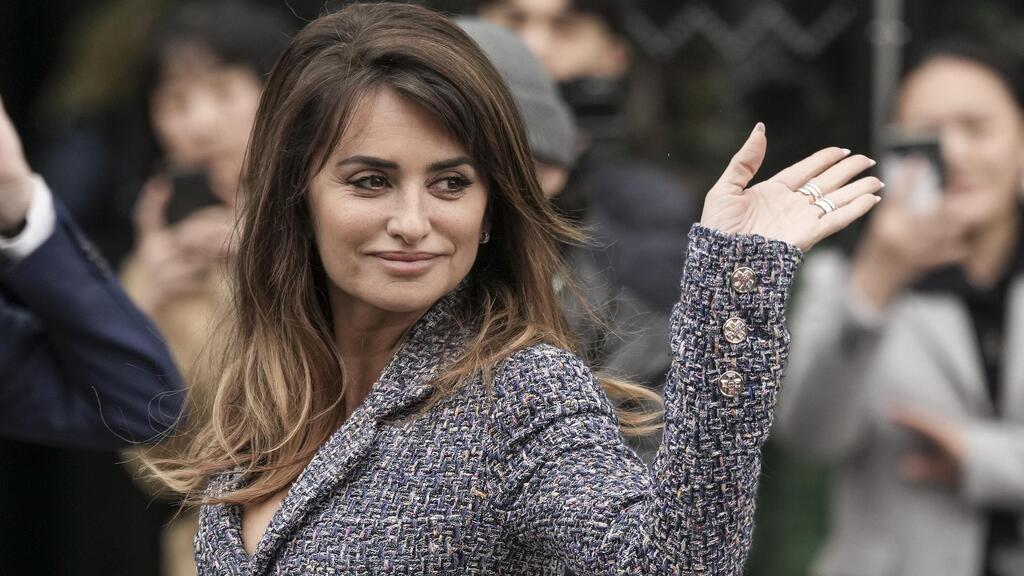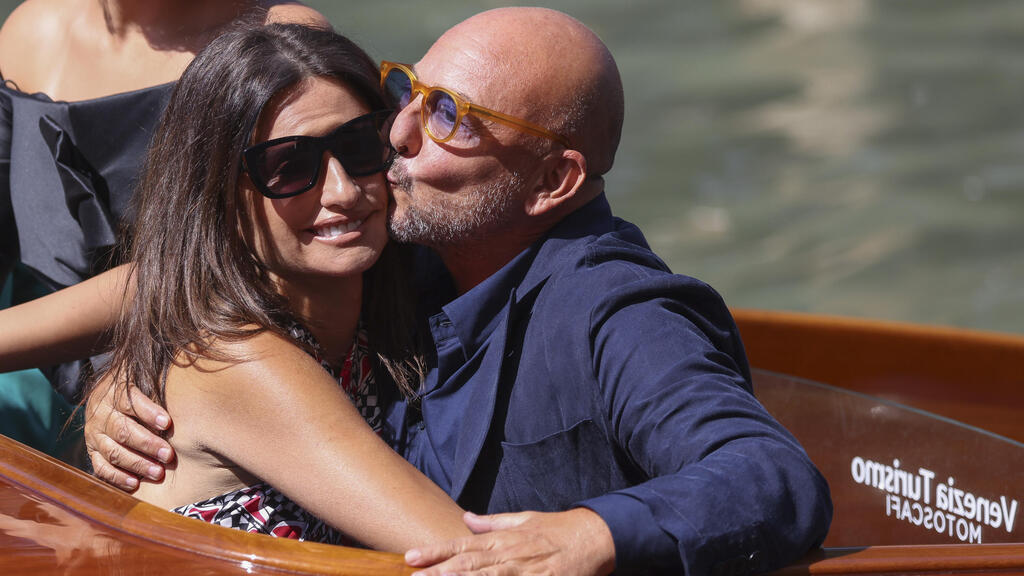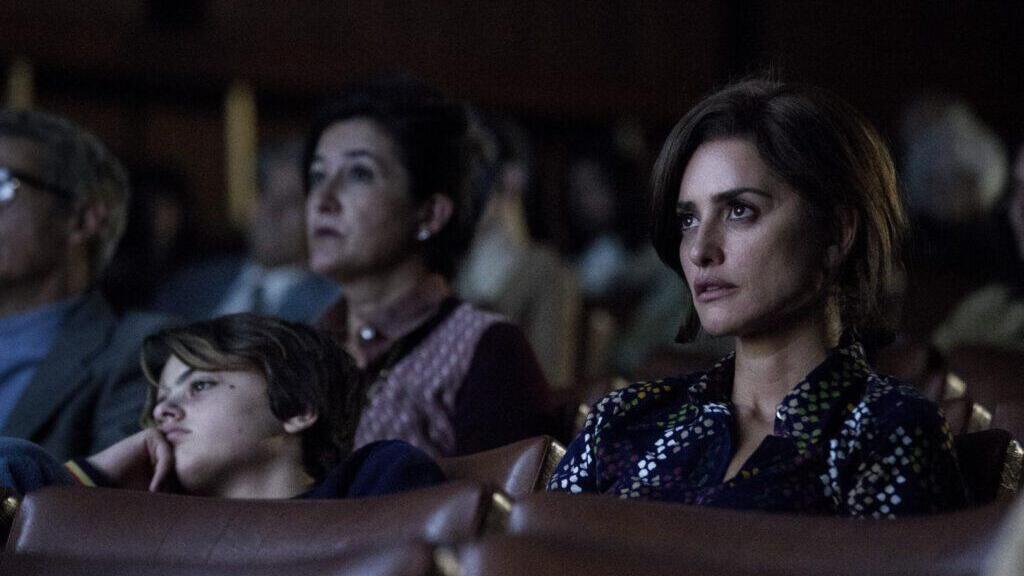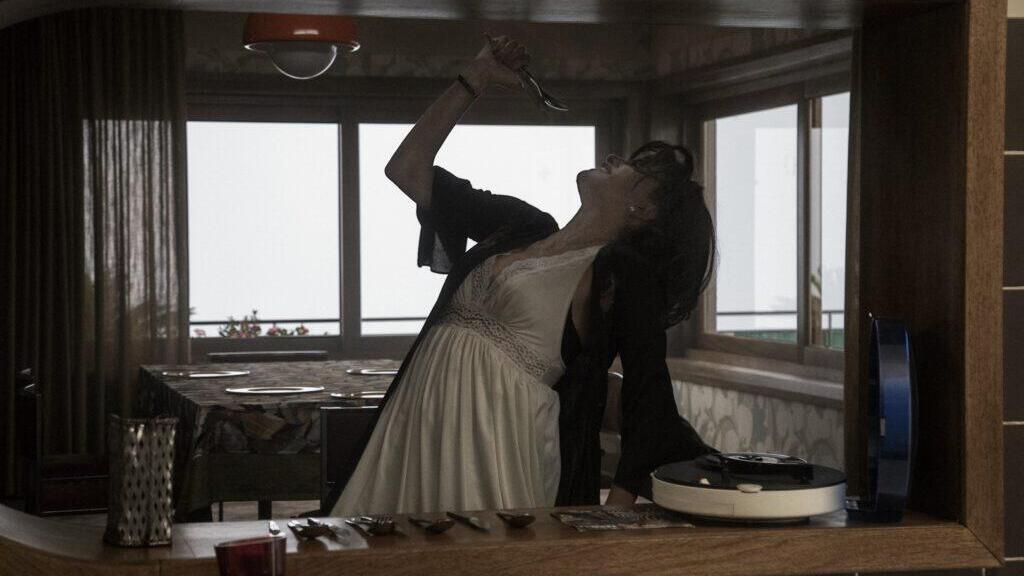Getting your Trinity Audio player ready...
L'immensità trailer
(Courtesy of Forum Film)
Long before Spanish actress Penélope Cruz became a mother herself, she was commonly cast for mother roles, especially thanks to her close friendship with the iconic Spanish filmmaker Pedro Almodóvar.
More stories:
The latest masterpiece starring Cruz is the new drama film "L'immensità," in which she plays a mother to a transgender boy living in 1970s Rome. Italian filmmaker Emanuele Crialese wrote and directed the film, based on his own childhood memories.
In an exclusive interview with Ynet at the Venice Film Festival, Cruz spoke passionately about the new film, the touching storyline, and Crialese's talent.
She said Crialese has a special way of seeing the world, calling him "brilliant" and applauding his ability to leave the interpretation up to the audience.
"He doesn’t judge anything and he puts out there all these subjects - but he doesn’t choose them for you. He doesn’t interpret them for you. He’s like, this is my experience with these things," she said.
"I think he’s always treating the audience as a smart, intelligent audience. Which is what a lot of directors don’t do. And it’s so refreshing to see. But he’s not escaping, he’s not ambiguous - he’s just like, life is complex. And so every single thing he talks about is complex, and I think that’s what is so beautiful about this film."
"L'immensità" tells the story of Clara - played by Cruz, and her abusive husband Felice - played by Italian actor Vincenzo Amato, a couple whose marriage is falling apart who have just moved into a new apartment. Their eldest child, 12-year-old Adrianna, rejects her name and identity and tries to convince everyone that she is actually a boy. This coming-of-age conflict pushes the already fragile family further toward a breaking point, leaving the children yearning for guidance.
As he presented his new film at the 2022 Venice Film Festival, Crialese - born biologically female - came out as a trans man, confirming that the film's LGBTQ+ narrative is based on his personal childhood experiences and struggles. Cruz said Crialese told her about his own story in "a very natural way."
"One day he showed me a photo of people from his family and then, in a very natural way in one of the conversations, he told me"
"It wasn’t like ‘Oh I’ll tell you a secret’. It was so… natural. Like, we met and we really connected and I felt so [much] love for his story and I felt [that] I need to tell this story. One day he showed me a photo of people from his family and then, in a very natural way in one of the conversations, he told me. And also ‘these are the different things that happened to me that are in this story’. Like, ‘not all of them but some of these things happened to me’. And it was."
Do you basically play a version of his mother?
״A version, because not all [of] these things happened in his family," she said. ״It was not only about his mother. He’s shown me a couple of pictures at the right moment, like, pictures that really helped me, and answered a lot of questions just with an image. Pictures of his mom but also of other women."
She added that in preparation for playing this role, she did a lot of research on women who experienced similar situations to that of Clara, and more specifically on women who are bipolar.
"I learned about other women in situations like that and also [about] some women with bipolar disorder - but we just didn’t want to focus only on that. It’s more open," explained Cruz. "She of course was not diagnosed with anything, because at that time almost nobody was. Especially [with] something more borderline. But it could be one of the possibilities,"
She went on to describe Carla as "many mothers in one, many women in one. "She’s at a point in her life where she could be dead in 24 hours or she could have a chance for a happy life. But she doesn’t appreciate it. She’s living in fear, in boredom, in depression - no hope, no plan B. And that’s what she can see in the eyes of her daughter, that she’s feeling the same things and she’s only 12 or 13. But she’s feeling trapped. So that’s where they connect.
"There are a lot of things they cannot say, or they don’t know how to say with words but it is only in each other that they can find respect and understanding for that need for freedom that they both have. Because if they don’t achieve that freedom at some point they're gonna die inside. And they both know this about each other, even if they cannot say it or they cannot put it in words because it was not right in that environment, in that family, inside that society. Or because she didn’t know how to handle her daughter’s situation, her daughter’s feelings. But at least she was the only person in that environment giving her daughter respect - and they have that in common.
"They both feel in a prison. And their only escape was through their little television: through art, through music, through dance, through movies. They would escape imagining that they were those characters.
"I always imagined like this woman full of life that if you take her out of that environment and put her somewhere else with other people that are not oppressing and suppressing her like that husband or that part of the family [on the side] of the husband, she would maybe flourish and maybe she would not have any signs of bipolar disorder.״
'Family is the most important thing in life'
Although some 50 years have passed since the real-life events of L'immensità took place, the status of women is still a hot topic, and Cruz shared that one of her motives in taking part in this film was to raise awareness.
"I know some of those women personally and their really terrifying stories. It’s another reason why I wanted to make this film. You’re gonna watch this film and see it all but now, unfortunately, in 2022 things are different. How many women really are living in horrific prisons inside their homes and have to hide that terror even from their own children, have to be acting every day and looking for a way to survive? People who are beating them up in front of their children… Really, really scary and horrible situations. Of course that hasn’t changed. A lot of women look for protection and when they find a way to speak – which is very difficult – once they do it sometimes nothing happens. They don’t get protection or they don’t get any real help, in most cases."
Even without [considering the] violence, why do you think it’s so difficult for men to understand women’s emotions?
"I would never… That language would never come out of my mouth because that would be a generalization," she explained.
"We cannot say ‘oh, men cannot understand women’s emotions’, no. We are all different, all unique. Some of my best friends are women, some of them are men and sometimes I share things, my secrets, with the men and not with the women - depending on what it is. I think everyone is so unique it would be impossible, it would be unfair, to say ‘oh, men’. At the end of the day something like that doesn’t even help feminism because it’s like we keep creating two different groups, more and more division. I have a wonderful partner that I can talk about everything [with] and we can understand each other. It’s very important to raise your kids in a way that you’re also treating them equally. I wouldn’t generalize like that. Or imagine, what is Pedro for example, for me, in my life? And he’s one of my closest friends. He understands me and all the women we have around better than anyone."
How would it be for you if one day one of your kids would tell you something like that?
"I am very lucky with the way I have been raised. I was born in ‘74 when my parents were 20, and they were very open-minded. They have always been like that. So conversations about any of these subjects in my house have always been open and natural. So that is who I am, because I've been raised like that and I feel very lucky about that. I feel like it could have been different because I was born in ‘74, so a lot of the people around us - in our environment, in our country - at that point were not as open as my parents. So imagine if I had been raised like that there is no other way, no possible way to see life other than respecting, accepting, understanding the needs of another human being. Of course, I am not going to talk about my own children because they are very young and I never talk about them anyway in interviews, but in general, in any situation, I have not one cell in me that could not respect or understand who another human being is or wants to be. At the of the day who Emanuel is, is who he is."
However, upon asking Cruz about the laws that protect transgenders, she preferred to skirt around the topic.
"I mean, I prefer not to get into specifics about the laws and from when [should they be applied]. I feel like if we all look at the world the way that he does, for example, or the way that Pedro looks at the world - just to put some examples of directors since we are here - I feel like everything would be so much smoother. And it’s all about respect. It’s about respect, about acknowledgment and respect and not looking away like some of the characters do."
Simple question: is family the most important thing in life?
"For me, yes."
Do you believe that women can have enough power right now to change this world, to stop violence?
Always, but it’s something that we have to do together - men and women.
Cruz said that she identifies with Carla's character, and that there are aspects of her childhood that were similar to her own in Madrid of 1970-80.
"One of the things that is very emotional for me about this movie is that I identify with the television as escape because I was always watching movies because I didn’t have a theater close to where I lived. These shows, these variety shows where I would see a lot of artists that I admired – especially on Saturday morning – and I would try to learn all their numbers and then I would force my entire family to sit down and watch for hours on a Sunday. Which I’m sure was a torture to them, because it was constant over the years. The TV was not just a TV, it was like an escape to another dimension, to dreams. And thanks to that and the BetaMax machine that my father bought a few years later I was able to keep dreaming about becoming an actress.״








